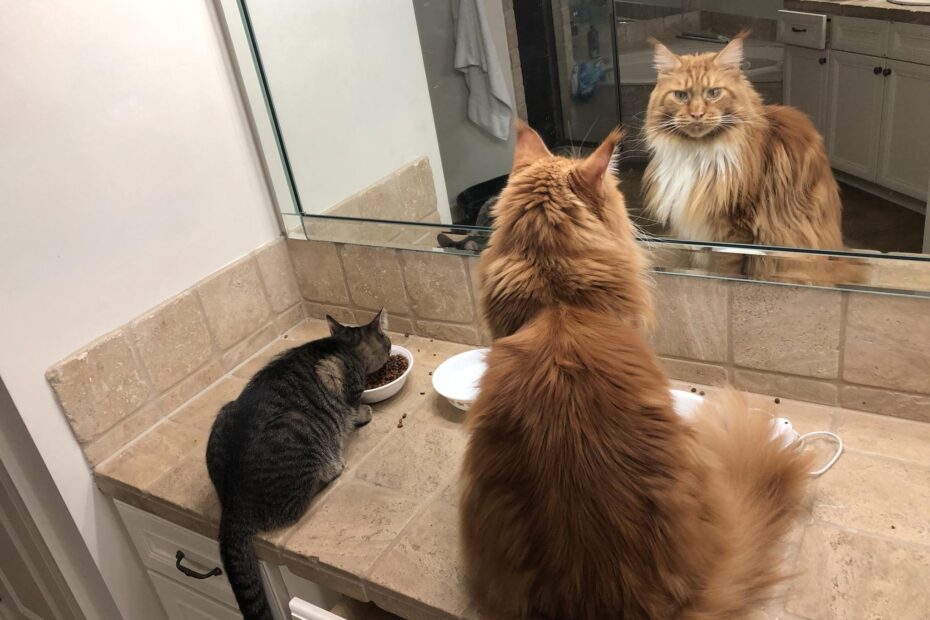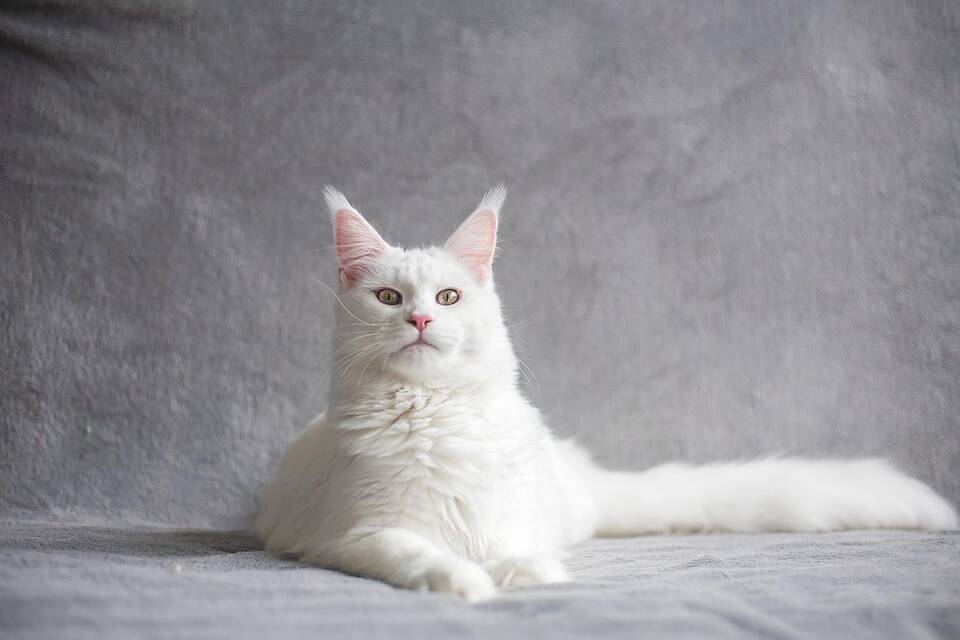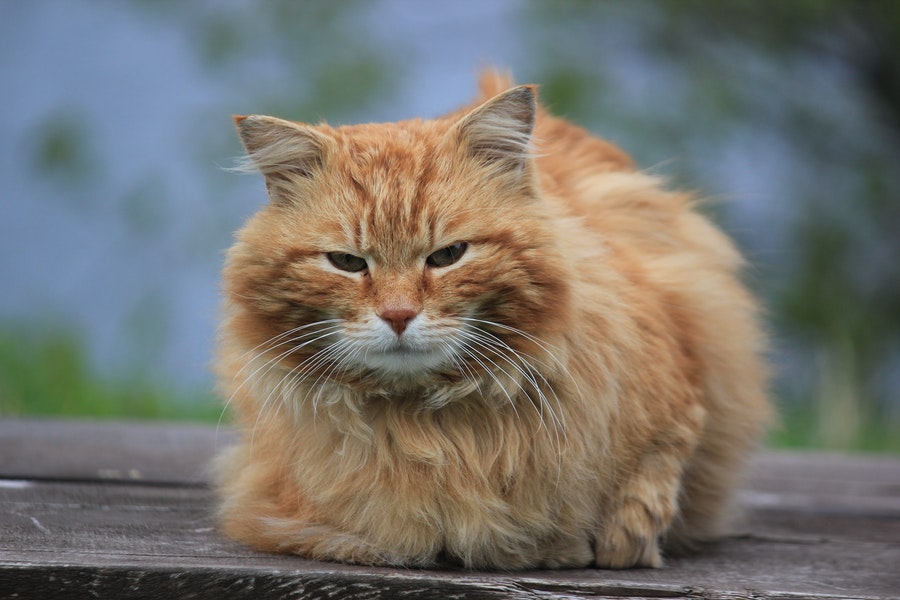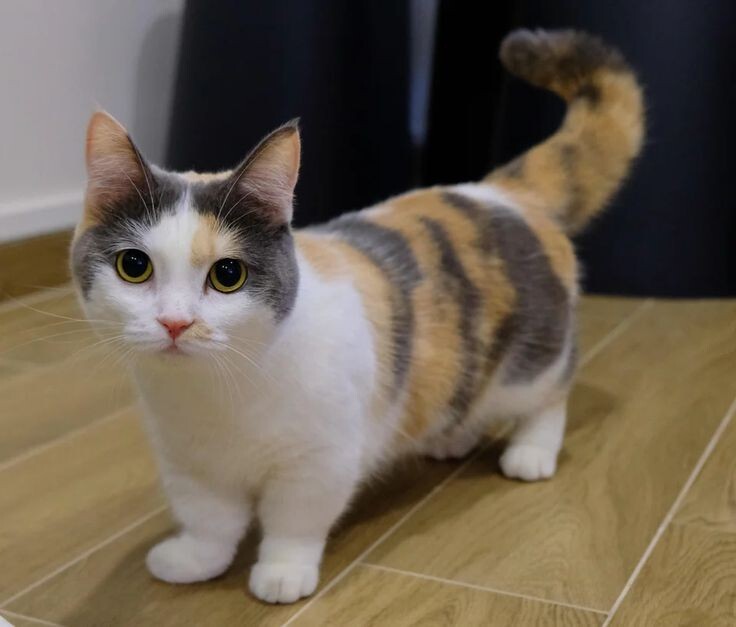Many foods are safe for humans to eat, but not so much for cats. This list will cover foods not to give a Maine Coon.
Like everything, the dose makes the toxicity. So everything mentioned below is ok in small amounts or random exposures.
This list is for those that love their Maine Coons and want to be extra safe when it comes to their cat’s diet and health.
1) Onions and Garlic
Onions have been reported to cause Heinz body anemia in cats. The consumption of garlic has been linked to this same effect.
Symptoms include pale mucous membranes, weakness, and a fast heart rate.
In large amounts, it can even cause the cat’s red blood cells to burst. Vomiting is also another sign of consumption of onions/garlic by a cat.
Another symptom includes the lack of ability from your Maine Coon cat to form clots properly; it can lead to increased bruising or bleeding out internally if they get cut or injured.
2) Alcohol
Not only is alcohol unhealthy for humans, but it is even worse when a cat ingests any type of it. It causes dehydration in cats and can lead to liver failure or death in the worst cases.
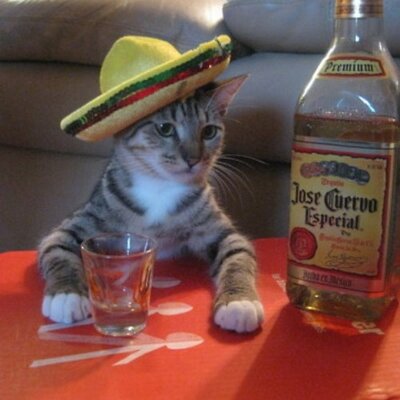
Signs that a Maine Coon has ingested some type of alcohol include vomiting, lethargy, diarrhea, difficulty breathing, seizures, weakness in legs/arms, and low blood pressure levels among others.
3) Macadamia Nuts
It’s not clear why macadamia nuts are dangerous to cats.
All we know about these foods is that one should avoid feeding them to Maine Coons at all costs due to them being linked to illness including diarrhea and vomiting.
4) Cats And Chocolate
All pet parents want to treat their feline friends. One of the most common food items (and one of the best tasting to some humans) is chocolate. But can cats eat chocolate?
Chocolate can be dangerous for cats. They can get very sick if they eat chocolate, and can even die.
Chocolate contains Theobromine which is a stimulant that can cause problems in cats. Theobromine can affect a cat’s heart, respiratory system, and can harm its central nervous system.
So youre better off just not giving your Maine Coon chocolate to avoid any potential problems.
5) Salt
Salt should not be given to Maine Coons as it can lead to sodium ion poisoning; this occurs due to ingesting foods with high levels of salt in them.
Symptoms include excessive thirst or urination, restlessness, vomiting, diarrhea, tremors/seizures/convulsions (in advanced cases), depression, lack of coordination (ataxia).
If you think your Maine Coon has ingested foods with high levels of salt, seek out professional help immediately.
6) Caffeine
Caffeinated foods are ones to avoid giving your Maine Coon cat at all costs due to them being linked to illness and possible death. Even foods that naturally contain caffeine should not be given to the cat regardless.
Drinks such as tea and coffee should never be given to a cat. Period.
7) Anything With Xylitol
Xylitol is found in foods like candy, peanut butter, toothpaste, or chewing gum. If Maine Coons ingest foods with this ingredient it can lead to a dangerous drop in their blood sugar levels which may result in liver failure.
It’s best to keep all items containing xylitol out of your cat’s reach at all times.
8) Human Medicine
Cats including Maine Coons should never be given human medicine. When cats are in need of medication it is best to speak with a veterinarian and ask for veterinary medicine specifically designed for cats, not humans.
Human medicine can be bad for cats because it can have side effects that harm cats’ health.
As crazy as it may sound but some research exists that suggests some mammals may become addicted to substances. The last thing you want is your Maine Coon with an addiction.
According to veterinarian Dr. Eric Barchas cats “should NEVER be given any kind of human medication without first consulting a veterinarian”.
He has seen cats become very ill after taking human medicine and it is a serious issue according to him.
9) Gluten Foods
Most cats like to eat and do not think about what they are eating. Maine Coons can eat gluten and seem fine, however, it is not a good idea if they continue to eat gluten-based food over time.
Gluten foods for cats can cause irritation to their digestive system which can lead to diarrhea, vomiting, loss of appetite, and weight loss.
Maine Coons that eat gluten often need to visit the vet because the gluten in their diet may stop them from eating as much as they should.
Your furball may start eating less and losing weight which is not good for a cat’s health.
10) Tuna
Tuna can be bad for cats in large amounts. This is because cats are strict obligate carnivores, which means they only get the nutrients they need from meat-based proteins.
Fish including tuna can be a source of Thiamanese which breaks down Thiamine (Vitamin B) in your cat’s body. This can lead to what’s called Thiamine deficiency.
Symptoms of Thiamine deficiency include twitching, loss of appetite, and poor coordination.
Tuna is also a source of Mercury, Phosphorous, and fatty acids which can cause serious harm to your Maine Coon if ingested over long periods of time.
However, it’s not all bad, if you wish to give your Maine Coon tuna, check out our guide on Maine Coon cats and tuna.
11) Yeast Dough
If yeast dough is eaten by a cat, yeast will ferment sugars in the digestive tract – including substances that are toxic for cats.
The yeast can also rupture the intestinal lining or even penetrate into deeper tissues and cause infection.
While yeast isn’t immediately toxic to humans. On the other hand, in cats, it can cause stomach upset, diarrhea, or worse.
Pizza contains yeast dough so be careful if giving your Maine Coon the crusts of a pizza.
12) Dog Food
For cats and for dogs, there are common foods that they should not eat because they can be dangerous. However, in terms of giving a Maine Coon dog food, it’s best not to do it.
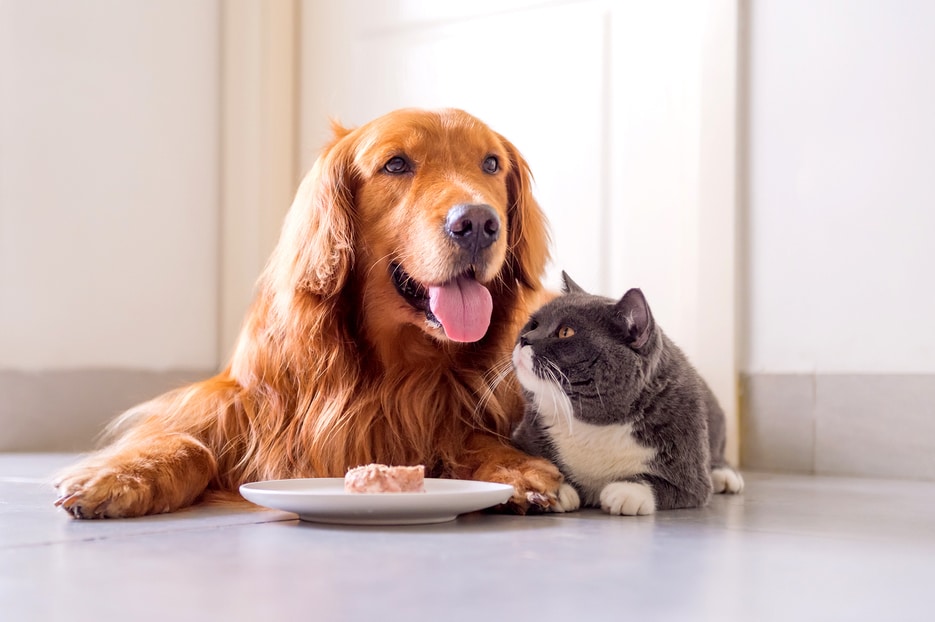
Dog food is designed to meet the specific nutritional needs needed by dogs who are omnivores, while cats are obligate carnivores that need a diet high in animal protein.
13) Animal Bones
Bones are very hard and many people love giving their dogs bones to chew on.
However, it’s best to keep bones away from your Maine Coon in general especially small bones which can become stuck in the cat’s throat.
Also, it’s advised not to give your cat cooked bones either. Cooking bones become brittle and can break when your cat tries to chew on them, this could lead to the bone getting stuck in the cat’s throat or stomach.
14) Too Much Liver
Although liver in small amounts is a great source of nutrients and vitamins. It’s best not to feed your Maine Coon too much liver.
If a cat eats too much liver it can lead to toxic levels of Vitamin A in your cat’s system. Vitamin A toxicity can cause bone deformation, osteoporosis, and even death in some extreme cases.
15) Meat Fat
A fat percentage of around 5 to 10% is considered healthy for cats. Fat from meat will have a much higher percentage, perhaps up to 50%, so should not be given to your Maine Coon cat.
There are many reasons why you shouldn’t give your cat fat from meat. One example is that the taste of this food could make them sick or vomit, or that it might make them very overweight.
It is even possible that the meat will contain chemicals that could harm your cat!
Further reading: Is bacon ok for Maine Coons to eat?
16) Raw Meat and Fish
Lots of people give their cats some meat and fish from time to time. That’s perfectly fine as long as it is a part of a balanced diet.
However, be aware that raw meat may contain pathogenic bacteria such as Salmonella or E Coli that will affect cats if ingested.
Even raw meat prepared in a commercial pet food plant is not sterile and can cause bacterial contamination in a cat.
Periodic outbreaks of salmonellosis have been reported in cats after the ingestion of contaminated commercial foods, particularly those containing raw meat or poultry.
Generally, it’s just best to avoid giving your Maine Coon any raw meat or fish.
Check out our article where we present the pros and cons of feeding a Maine Coon cat a raw food diet.
17) Dairy Products
You should not give your cats milk, cheese, butter, or cream in case they are lactose intolerant. Most cats are by the way.
This means they do not have the right digestive enzymes to break down the large amount of sugar in these dairy products.
If cats eat dairy products they can become ill, produce more urine, and can eventually stop eating altogether.
Their digestive systems can also be upset by the lactose in the milk making the cat dehydrated which can lead to serious health problems.
Whether or not to give these foods to your Maine Coon is very dependent on how much and how often you let them have it.
You may also be interested in reading:
- Can Maine Coons drink milk?
- Is It ok to give a Maine Coon cheese?
- Can I give my Maine Coon strawberries?
18) Too Many Treats
One of the most commonly asked questions for cat owners is can you give a cat too many treats? The answer to that question can be complicated.
On one hand, cat treats can be a great way to bond with your feline and reinforce good behaviors.
On the other hand, giving too many treats can lead to a number of detrimental health effects.
Some of the health effects of giving your cat too many treats are:
- weight gain (obesity)
- diabetes
- upset stomachs and diarrhea
- increased cholesterol levels in cats
While it can be really fun to give your cat a yummy treat, doing this can lead to some rather unpleasant effects.
So best to do everything in moderation.
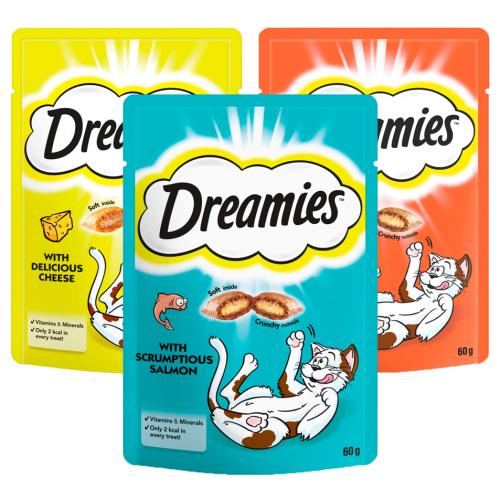
19) Grapes and Raisins
Grapes and raisins can be very dangerous for your Maine Coons health.
Eating grapes and raisins can lead to acute – sudden and severe – kidney failure in some cases.
It can also cause renal dysfunction, which can be a precursor to the development of chronic kidney disease.
This can be avoided by simply not feeding your cat grapes and raisins at all.
The most common symptoms of grape or raisin poisoning in cats can include vomiting, depression, lethargy, and diarrhea.
20) Tomato Plants
Another food that you shouldn’t give a Maine Coon is tomato plants. Tomato plants can cause a lot of problems for cats.
If your cat is a little adventurous and likes to eat things that it probably shouldn’t be eating, then you need to take extra care with tomatoes plants.
Tomato plants have a lot of chemicals in them which can be bad for cats and cause serious symptoms.
The first type of problem that tomato plants can cause is gastrointestinal irritation. The chemicals can damage the lining of your cat’s stomach and lead to ulcers and other problems.
The second type of problem is neurological problems. Cats can get what is called ‘tomato toxicity’.
This is basically the same sort of reaction that humans have when they eat things like green potatoes and some types of poisonous mushrooms.
Other symptoms can include slow heart rate, weakness, and depression.
Further reading: Can Maine Coons Eat Grass?
21) Peaches
The leaves, stems, and seeds of peaches contain cyanide which is poisonous and is known to cause cyanide poisoning in cats.
Ingesting peaches can have a range of side effects on a cat’s health. Some side effects include:
- Allergic reaction
- Digestive problems
- Increase in thirst and urination
- Diluted pupils
21) Citric Acid
Citric acid is a substance cats cannot digest. If cats eat or drink things with citric acid in them, they may get serious tummy aches and other gastrointestinal issues.
This has been reported in cats that have ingested citrus fruit juices, oranges, lemons, grapefruits, or sodas.
If cats eat too much of the acid in soda, it can cause cats to form crystals in their urinary system, leading to urinary blockages. This causes cats intense pain and is very difficult to treat.
Moreover, citric acid is very bad for tooth enamel and over time it can destroy your Maine Coons teeth.
22) Raw Eggs
It’s best not to give your Maine Coon raw eggs. Raw eggs can contain harmful bacteria such as salmonella.
Raw eggs also contain a protein called Avidin in the egg white which interrupts the absorption of some vitamins and biotin. These nutrients are needed to maintain healthy hair and claws.
It’s best to cook eggs before serving as eggs are very nutritious for Maine Coons.
Conclusion
So now you have a whole list of foods not to give a Maine Coon cat.
If your cat eats a little bit of any of these foods it will probably be ok. But just to be safe, stay vigil and look out for any symptoms that can arise.
If you do notice symptoms, head to your veterinarian for help.
Elliot is the owner and lead writer at Lais Lairs. He is the proud owner of a Maine Coon/Siberian Mix cat named Lai. His oldest cat lived to be 18 years old so he’s learned a thing or two about keeping pets. When he’s not writing you can find him playing video games or playing fetch with Lai.
